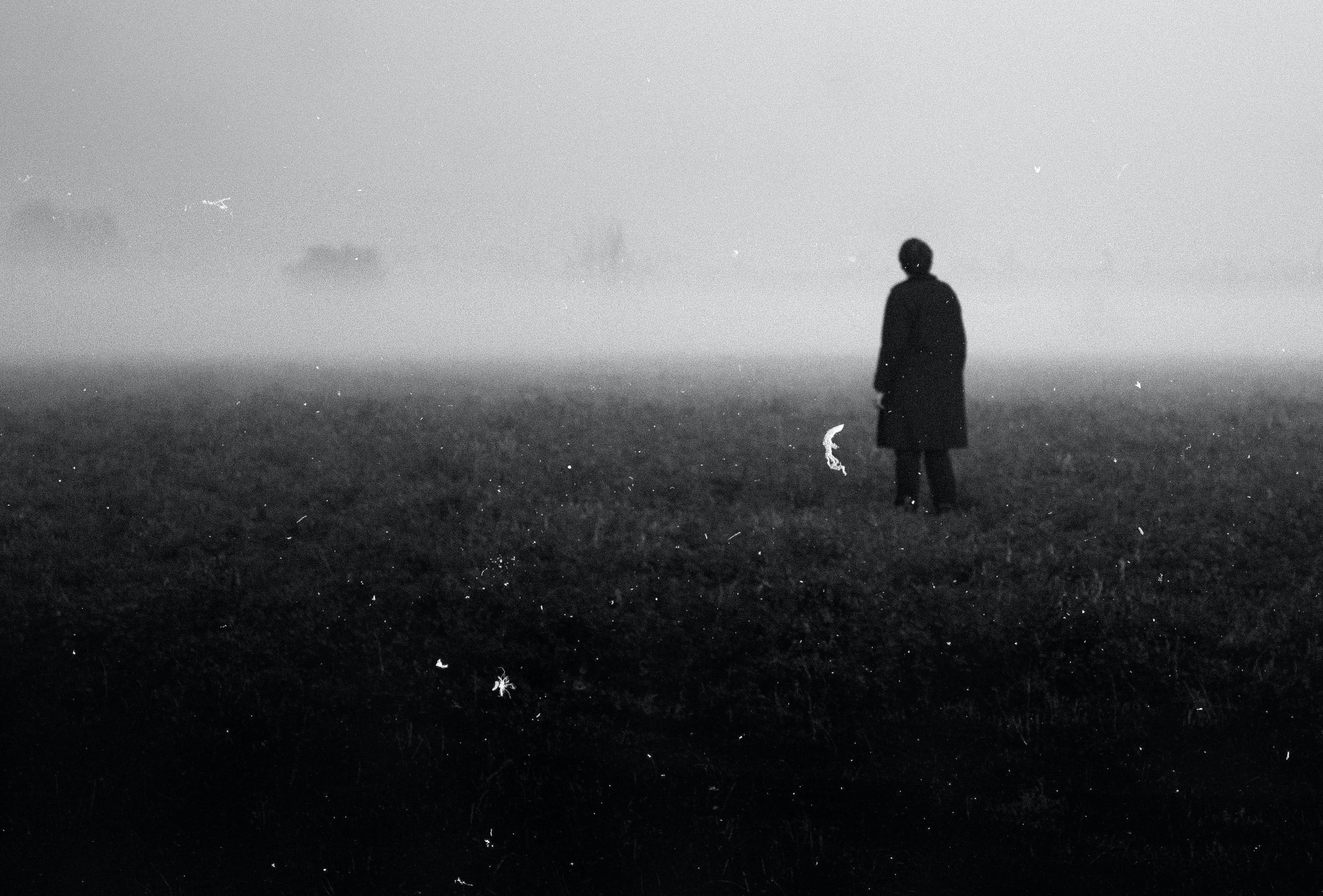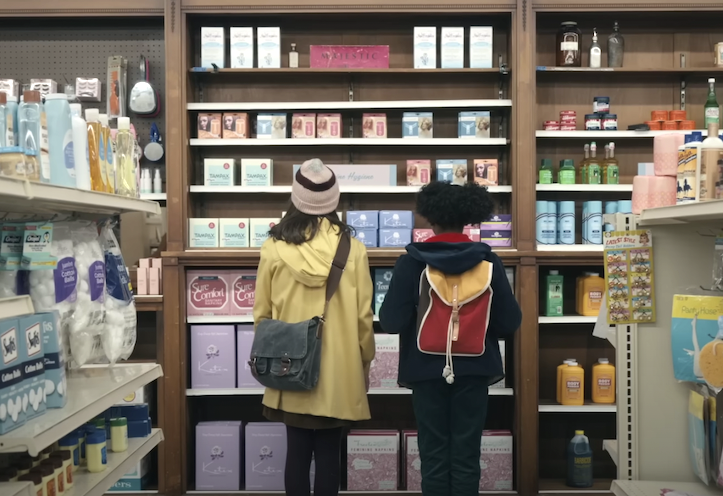interviews
A Mother-Daughter Cult Experience
Chelsea Bieker's "Godshot" is a coming-of-age story about a missing mother and a cult in drought-addled California

Chelsea Bieker’s dazzling, propulsive, and deeply affecting debut novel, Godshot, announces a remarkable talent. Fourteen-year-old narrator Lacey May is dealing with immense internal and external struggles: her mother suffers from alcoholism, and the two of them (along with almost the entire community of Peaches, their tiny, drought-addled town in California’s Central Valley) turn to a cult leader named Pastor Vern for guidance and relief.
As you might suspect, things go from bad to worse under the pastor’s care, and just as he gives Lacey May a secret “assignment” to bring back the rain, he excommunicates Lacey’s mother from the church, leaving Lacey May alone in a filthy house with her widowed grandmother. Soon Lacey finds herself in a tremendously vulnerable position (“A gun in the face lets you know in an instant just how badly you want to live,” she laments) and an unlikely coterie of women comes to her aid. These circumstances are crushing and unthinkably bleak, yet in Bieker’s deft hands it’s Lacey’s strength, resilience, and hope that resonate.
The plot of Godshot is multi-faceted and compelling, covering topics as wide-sweeping as motherlessness, addiction, poverty, and adolescent yearning, but what sets this novel apart is the ambition, style, and grace of the prose itself. Lacey May’s voice is as urgent and darkly funny as a late-night phone call from your troubled best friend, but its Bieker’s skillful swerves and breathless rhythms that make the story gleam.
Chelsea Bieker and Leni Zumas, acclaimed author of Red Clocks, recently spoke about these masterful sentences, as well as resilience, friction, female friendships, arranging art around one’s family life, and more.
– Kimberly King Parsons
Author of Black Light
Leni Zumas: I’m struck by so many kinds of powerful friction in this novel: emotional, familial, sexual, class-based, gender-based. Friction is not quite the same as conflict, to me—for one thing, a text might enact friction in subtler ways, even at the level of a single image or phrase. What do you see as the most vital sites of friction in Godshot, and why?
Chelsea Bieker: I love this idea of friction. The first thing I think of is my experience with the actual writing of Godshot in terms of place. The thrill of writing this barren and monochromatic droughted town of Peaches, California, and the way it bumped up against the more garish and unexpected details of the objects and people inhabiting it. Everything is dead, beige, dusty and dry, but the characters wear sequined capes and clear platform shoes with stars floating in them, they are shaving the tops of their heads to receive God’s messaging and adorning themselves in bright makeup and driving magenta hearses. One of the characters is setting out to make his fortune painting dead lawns neon green. This need for color and brightness and specialness amid the desolate landscapes was an important contrast for me, and really fun to write.
Another vital site of friction here is the way Lacey May, our fourteen-year-old narrator is forced to self educate about her body and sex through found materials—romance novels and the wisdom of sex workers and birth workers, and books and magazines smuggled around—because she is not receiving this education formally in school or church, or from her mother. There exists a friction between her initial understanding of her body (something of use to the church and to men) and then a new definition, the education she seeks herself.
LZ: Motherhood is at the core of your novel. You are a mother. How did your own experiences of parenting and of being parented come to bear on this book?
CB: The answer to this question is everything. My own experience with motherhood and my experience being parented formed the heart and soul of this narrative, which, after you strip away all the cult glitter and soda pop baptisms, is really about a young girl forced to raise herself and reckon with the living grief that comes when a parent deserts you.
The idea of mothering someone was spiritually daunting when I had felt so unmothered and abandoned all my life.
It was striking to me when I became pregnant with my daughter over six years ago, that I would need to conjure an unknown love. I knew on some practical level I would be able to do it, because I had broken many familial cycles before this one, but there was something spiritually daunting about the idea of mothering someone when I had felt so unmothered and abandoned all my life. It seemed I would have to perform a sort of imaginative magic to do it, some deep reach into myself to find a new strength and resilience in the face of such a huge life shift. And now, six years into mothering my daughter and son, feelings will come up to the surface as they reach the ages I was when certain things happened, and I’m forced to re-process my own loss and traumas all over again.
I knew I would have to write a book where the narrator is dealing with the grief that comes with being the child of an alcoholic and having a parent leave you but not die. The book is also about living in the simultaneous space of unresolved anger and sadness but also persistent love. I never stopped loving my mother deeply and I never will. Lacey, too, never will. I think there’s something beautiful about that but also really sad. I’ve learned that sitting with sadness and feeling its dark edges and then putting it away is something I can survive.
LZ: How does your identity as a mother most keenly inform, intersect with, and/or collide with your identity as a writer?
CB: First let me say how honored I am to be the mother of my children. Not a moment goes by that I’m not mowed over by my good fortune that they chose me, and I believe that love finds its way into my writing. On the other hand, being both a writer and a mother can be very difficult. I wrote this book pregnant and then ravaged and sleep deprived, nursing, bleeding, pumping, and then just as I was sleeping again semi-normally, I did it all again and through it all I grasped to my writing practice like it would save my life. Writing was all my own when nothing else was, not even my body. Even as I’m writing this, I’m interrupted by my child’s need for one more snuggle. There’s always someone’s needs to attend to, and to say that that is easy for me, is a lie. Loving them is easy for me. But the rigor of full time parenting on top of writing is intense. But I wanted and still want both hard things.
Recently, I heard someone describe my book in just one word: raw. I think that’s right. I’ll own that. Motherhood is raw. Loss and grief and addiction are really raw. I’m not interested in art that doesn’t reckon with that in some way.
LZ: For me, one of Godshot’s biggest pleasures is its nuanced exploration of friendships among women. How would you describe the role of female friendship in Lacey’s story?
CB: For Lacey May, female friendship is a crucial part of her survival. It’s her way out of her circumstances. The unlikely friendships she makes were a joy to write because usually when we come through trauma, we aren’t doing it all alone, and I wanted that to be painted here. When we are coming of age and looking for other ways to be and live beyond our own limited scope, friends can show us new truths. The role of Lacey’s friendships here move her and empower her, and force her to call into question the way she has always perceived the world. It’s also a source of happiness in her world, a source of hope. It’s healing too, when someone sees something in you you had never seen before. It expands your consciousness of what is possible for your life, and I think that happens to Lacey here.
LZ: Place is a crucial (and fascinating) ingredient of Godshot. How did your own ties to California’s Central Valley shape the book?
I’ve learned that sitting with sadness and feeling its dark edges and then putting it away is something I can survive.
CB: I grew up in the Central Valley and experienced so much formative trauma there that I spent most of that time imagining my way out. The reality of that place for me is chock full of difficult memories, but once I was away from it, a new curiosity formed and I was drawn in. I closed my eyes and saw the flat landscapes and the hazy blue sky. I felt the heat of summer in my body and in my own way, I became reacquainted with it. I was out of my trigger zone and able to explore it on my own terms through writing.
To me, the Central Valley is a fascinating place, full of contradictions. I wanted to explore these in this book, and how a place makes you. I’m not sure that the old adage wherever you go, there you are, holds up for me there. When I am there, I am not myself. I need distance from it to see it clearly. To be the person I am meant to be. In real life I don’t want to drive by the liquor store my mom used to frequent and be thrown into memory, but I feel compelled to write about it. That’s my way of loving a place that didn’t love me back. Though I do crave the way that particular sun looks setting over the fields, or the ticking by of rows out the window as I drive by an orchard.
LZ: What’s most important for you in the making of sentences?
CB: All sentences for me are rooted in voice. I hear the music of a sentence and I transcribe. It is as though I’m channeling characters speaking and I feel the buzz of their aliveness. Usually I abandon work on a piece when the sentences don’t seem to have that musical magic anymore. I like playing with variation, rhyme, and in revision of course, rewriting sentences to be more surprising and succinct, or winding and breathless. But there’s something energetic about that first burst of sound I hear with a story or a voice. I like to follow that and not question it.
LZ: In what ways did this book change as you were writing it? And in what ways did writing this book change you?
CB: Writing this book asked me to evaluate the things I was taught and (mainly) not taught growing up about my body and consent and sex and feminism. As Lacey May was self-educating, so was I. When I first began writing the book, it struck me that I was a pregnant adult and had never seen someone give birth before. Had never seen someone breastfeed. It had all been kept behind closed doors from me which just caused me to file it in with all the other shameful womanly acts. The energy of my rage over my own experience heightened as my rage over what Lacey May experiences in the book did. Each draft felt like a deepening of discovery, rage, and then, empowerment.
LZ: In Aja Gabel’s 2018 novel The Ensemble, which is about classical musicians, a composer says:
It had long been a dream of mine to do something like this, to arrange my life around the people I love, to create a shared life with every one of them. I think probably many of you have considered this at one point or another, but thought it impossible. I think many of us strive for community and family but often find it difficult to participate in because of, well, life gets in the way. But it is possible. It is possible to arrange your life around art, and to find, in that art, a kind of love that grows like corn, from way down here to way up here, that changes, goes away, comes back.
At this particular moment in your art-making life, how does the composer’s ambition resonate with you?
CB: What a beautiful book. I love Aja’s writing. I love the hope here. But it is possible. A life arranged around art and family describe my dream. I am lucky to have found both despite, yes, it not being a second nature for me to participate. That was a learned skill. In this current moment of physical distancing, I find my connection to other writers heightened. I find the exchange of stories and books ever more important as we find ways to survive our times. And when I think maybe things are hopeless, I can go back to the mantra of the composer: But it is possible. I love that spiritual nudging, that interruption of doomsday thinking. That delightful and staggering expansion of a possible beautiful and better reality.









